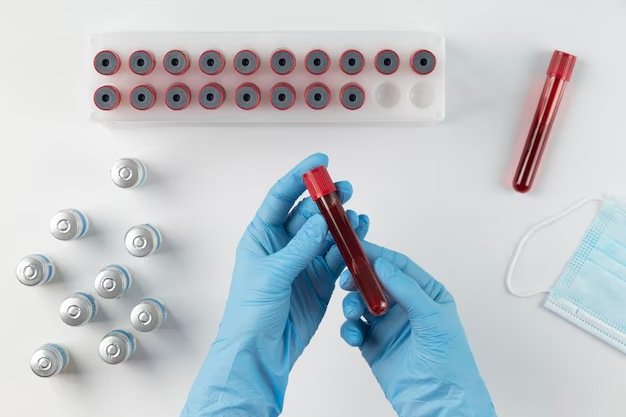Recurrent Miscarriages
Home / Recurrent Miscarriages
Home / Recurrent Miscarriages
Struggling to start a family despite trying for a while can be
emotionally draining, but you are not alone in this journey.
Infertility is a common medical condition affecting many couples
worldwide.
If you and your partner have been attempting to conceive for
over a year without success, it might be time to explore
infertility management options. This also
includes addressing challenges such as recurrent miscarriages.

Infertility is a complex condition with various causes, including issues with either partner or medical conditions that hinder a healthy pregnancy. However, infertility is not a hopeless situation. Thanks to modern medicine, several safe and effective treatments can help enhance your chances of getting pregnant.
The most obvious sign of infertility is the inability to conceive after a year of regular, unprotected intercourse. However, there are other signs to watch for. Women may experience irregular or absent periods, while men may notice issues like erectile dysfunction or changes in hair growth.
Genetic Abnormalities:Chromosomal problems in either parent can lead to embryos that cannot grow normally. This is one of the most common causes of repeated pregnancy loss.
Hormonal Imbalances:Issues such as thyroid disorders, PCOS or low progesterone can affect the uterus and make it hard for a pregnancy to stay stable. Proper hormonal balance is essential for early fetal development.
Uterine Structural Problems: Conditions like a uterine septum, fibroids or polyps can block implantation or reduce space for the baby to grow. These structural issues can often be corrected with medical treatment.
Blood-Clotting Disorders: Disorders like Antiphospholipid Syndrome (APS) or inherited thrombophilia can cause tiny clots in the placenta. This reduces blood supply to the fetus and increases the risk of miscarriage.
Immune System Abnormalities: Sometimes the immune system mistakenly reacts against the developing pregnancy. Autoimmune conditions can interfere with proper implantation and fetal growth.
Chronic Medical Conditions: Uncontrolled diabetes, thyroid disease, hypertension or kidney problems can create an unhealthy environment for pregnancy. Proper management reduces the miscarriage risk.
Mother’s Age: Miscarriage risk increases significantly after age 35 because egg quality naturally declines. This can lead to chromosomal problems in the embryo.
Infections: Certain untreated infections—bacterial, viral or sexually transmitted—can affect the uterus or placenta. When not treated early, they can disrupt a healthy pregnancy.
Lifestyle Factors: Smoking, alcohol, drug use, obesity or severe stress can negatively affect hormones and blood flow. Making healthy lifestyle changes can greatly improve pregnancy outcomes.
Environmental Exposure: Exposure to harmful chemicals, radiation or toxins at home or work may increase miscarriage risk. Reducing environmental risks can support a healthier pregnancy.
It is rather difficult to pinpoint why a miscarriage happens,
but, as a rule of thumb, it is never caused by something the
pregnant person did or practiced. Out of medical ignorance, a
lot of people falsely assume the cause of miscarriages to be sex
during pregnancy, exercise, working, or minor falls and
injuries.
However, according to Dr Sukhamoy Barik,
the best gynecology doctor in Dumdum , there are
medically known causes of recurrent miscarriage that may explain
why some women experience repeated losses. These causes include:
The fertilized eggs having an abnormal number of chromosomes can lead to miscarriage. Since this is a solely genetic issue, it happens by chance and cannot be medically controlled. However, specialized genetic counseling and testing may help.
Some illnesses, such as severe diabetes, can also increase the chances of miscarriage. If not controlled, endocrine imbalances might lead to recurrent pregnancy loss.
A serious injury or a major infection might be instrumental in causing a miscarriage.
Some specialists suggest that abnormalities in the uterus, such as endometriosis, may cause late miscarriages. This condition can sometimes cause recurrent missed miscarriages and warrants specific treatment plans.
A recurrent miscarriage often happens due to a history of previous miscarriages. If you’ve experienced one or more losses, the risk of a future miscarriage increases. However, addressing underlying repeated miscarriage reasons with proper medical care can offer hope.
In rare cases, the mother’s immune system might attack the developing embryo, leading to a miscarriage. Blood clotting disorders can also be a significant factor.
These recurrent miscarriage reasons vary widely, which is why individualized treatment is crucial. Dr. Sukhamoy Barik, an expert in recurrent miscarriage treatment in Dumdum, emphasizes understanding each patient’s unique condition to offer the best care possible.


Most often, there are no visible signs of miscarriages. Usually, you either find out about the miscarriage through an ultrasound or because the symptoms of pregnancy disappear. However, when symptoms do manifest, they include:
Vaginal bleeding, often heavy and with clots
Excruciating belly pain or cramps
Severe cramping, similar to that experienced during a menstrual cycle
While these symptoms are concerning, they are not always indicators of a miscarriage. Bleeding and cramps may arise from other pregnancy-related conditions. However, if you experience these symptoms in Kolkata, it’s crucial to visit the recurrent miscarriage gynecologist in Dumdum for evaluation to ensure everything is progressing as expected.

Talk to Dr Sukhamoy Barik, the best Gynecologist in Kolkata, to clear your doubts and decide the best treatment options.
Miscarriages happen differently for each person. However, a
common overarching theme in all miscarriages is the loss of the
pregnancy, either silently or with noticeable pain and bleeding.
Not every miscarriage is severely painful. Some proceed quietly,
while others may cause intense cramps and bleeding.
Many women who experience miscarriages report period-like pain,
and some pass large blood clots. The bleeding and cramping
eventually subside on their own. If they do not, seeking
consultation from a doctor is important. Your physician can
prescribe medications to manage the bleeding and cramps during
the miscarriage. Whether the miscarriage is painful or not, it
can be emotionally upsetting. During this challenging time, it’s
essential to keep in touch with your physician, who can provide
emotional support and offer medications to alleviate your
discomfort.
Dr. Sukhamoy Barik, a renowned
gynecology doctor in Dumdum , specializes in
comforting patients during this tough phase. He also offers
solutions for patients facing recurrent miscarriages, helping
them take steps toward a healthy pregnancy.

Experiencing multiple miscarriages can feel like a never-ending
cycle of loss and grief. However, it’s important to know that
recurrent miscarriage treatment in Dumdum is available and effective
for many patients.
Once the recurrent miscarriage gynecologist diagnoses the root cause
of the miscarriages, treatment can be tailored to your needs.
Treatments might include:

To regulate any imbalances, especially in cases of polycystic ovary syndrome (PCOS) or thyroid issues.

For uterine abnormalities like polyps or septa that can prevent implantation or cause miscarriage.

If your body’s immune system is attacking the embryo.

Anticoagulants for patients with blood clotting disorders.
Though miscarriages are medically common, they are deeply
emotional experiences. The feelings of grief, frustration, and
helplessness are normal, especially if you’ve faced multiple or
recurrent miscarriages. Support from loved ones and an
experienced doctor is essential during this time.
Dr. Sukhamoy Barik believes in offering not just medical
solutions but also emotional support for patients facing
recurrent miscarriages. His approach includes providing hope and
encouragement, empowering patients with the right treatment, and
giving them the chance to achieve a successful pregnancy.
If you’re dealing with recurrent miscarriages in Kolkata, Dr.
Sukhamoy Barik can help you turn your dream into a reality. With
the right medical and emotional care, many women can break the
cycle of recurrent miscarriages and welcome a healthy baby into
their lives. Don’t lose hope—reliable treatments exist, and Dr.
Barik is here to guide you every step of the way.
Contact Today!!
Recurrent miscarriages can be caused by chromosomal abnormalities, uterine issues, hormonal imbalances, or immune system disorders. In some cases, underlying health conditions like diabetes or thyroid issues may also play a role.
Yes, treatment for recurrent miscarriage depends on the cause and may include hormonal therapies, surgery for uterine abnormalities, or lifestyle changes. Genetic counseling or medications to treat underlying conditions can also improve pregnancy outcomes.
After 3 miscarriages, it’s essential to consult a healthcare provider for a thorough evaluation. They may recommend genetic testing, ultrasounds, blood tests, or other diagnostic measures to identify potential causes and guide treatment.
Yes, poor sperm quality, including DNA fragmentation, can contribute to miscarriage. Sperm-related issues can affect embryo development, increasing the likelihood of pregnancy loss.
Yes, many women go on to have successful pregnancies after recurrent miscarriages. With proper diagnosis and treatment, the chances of carrying a healthy pregnancy to term are often improved.